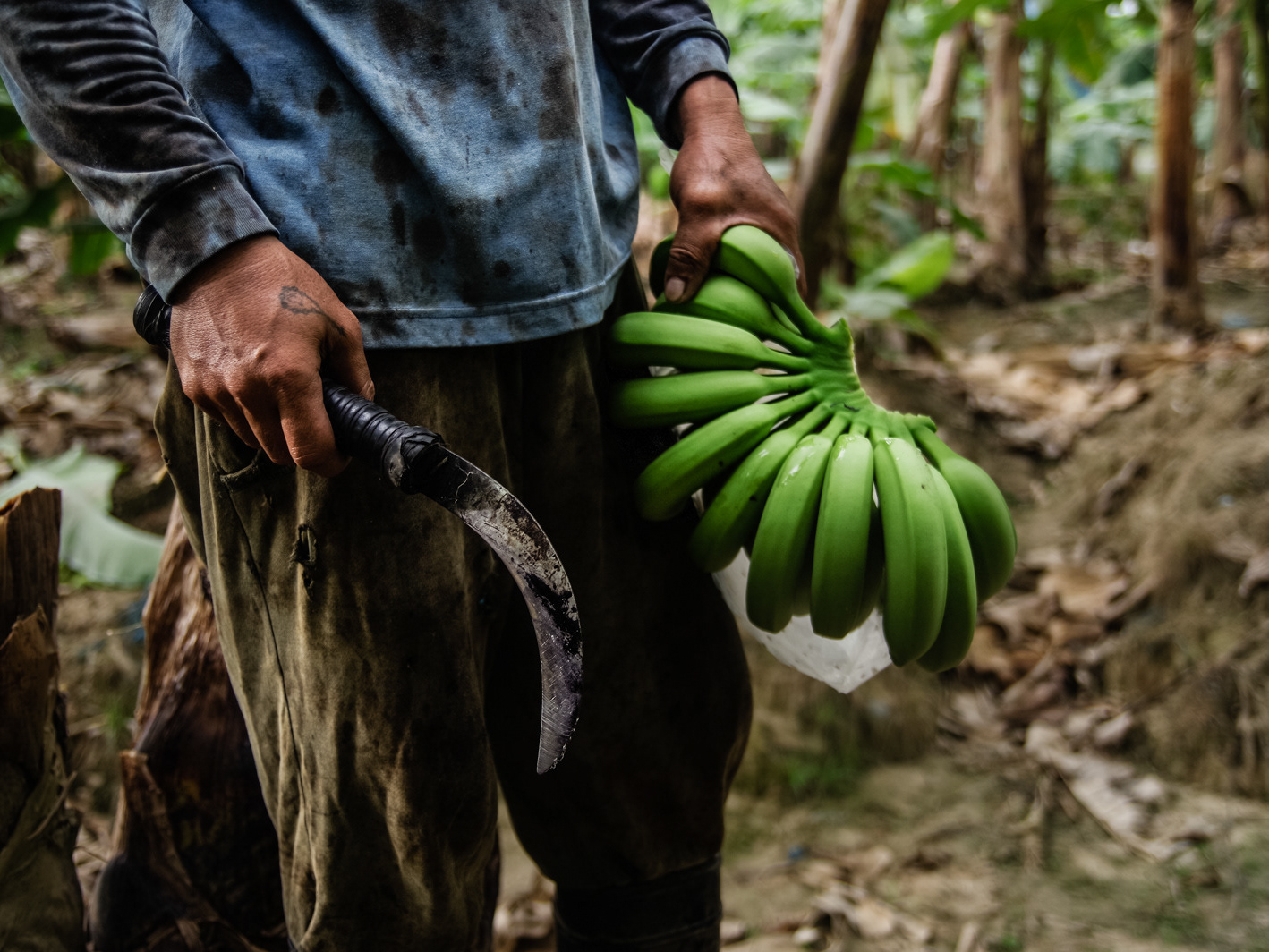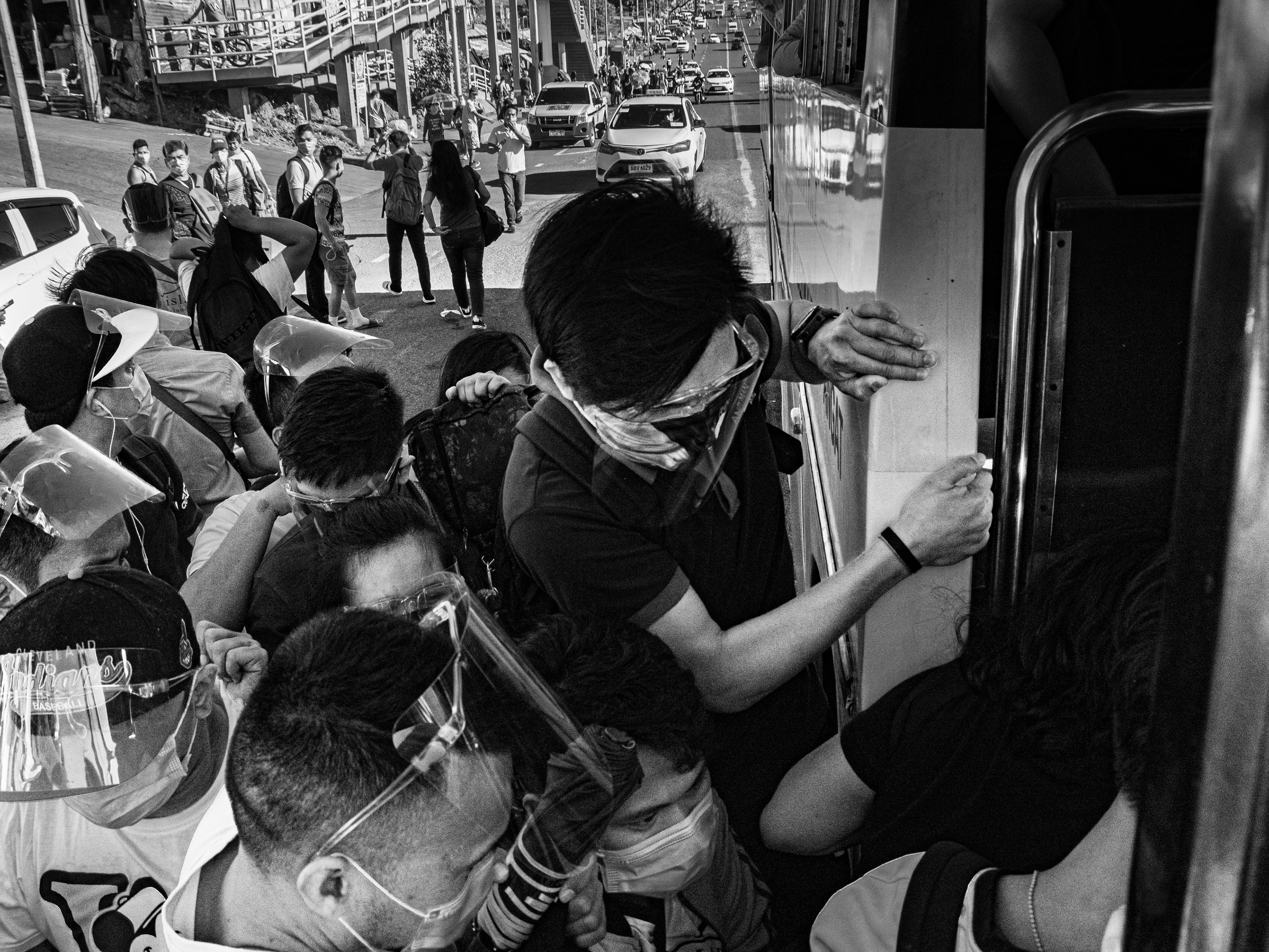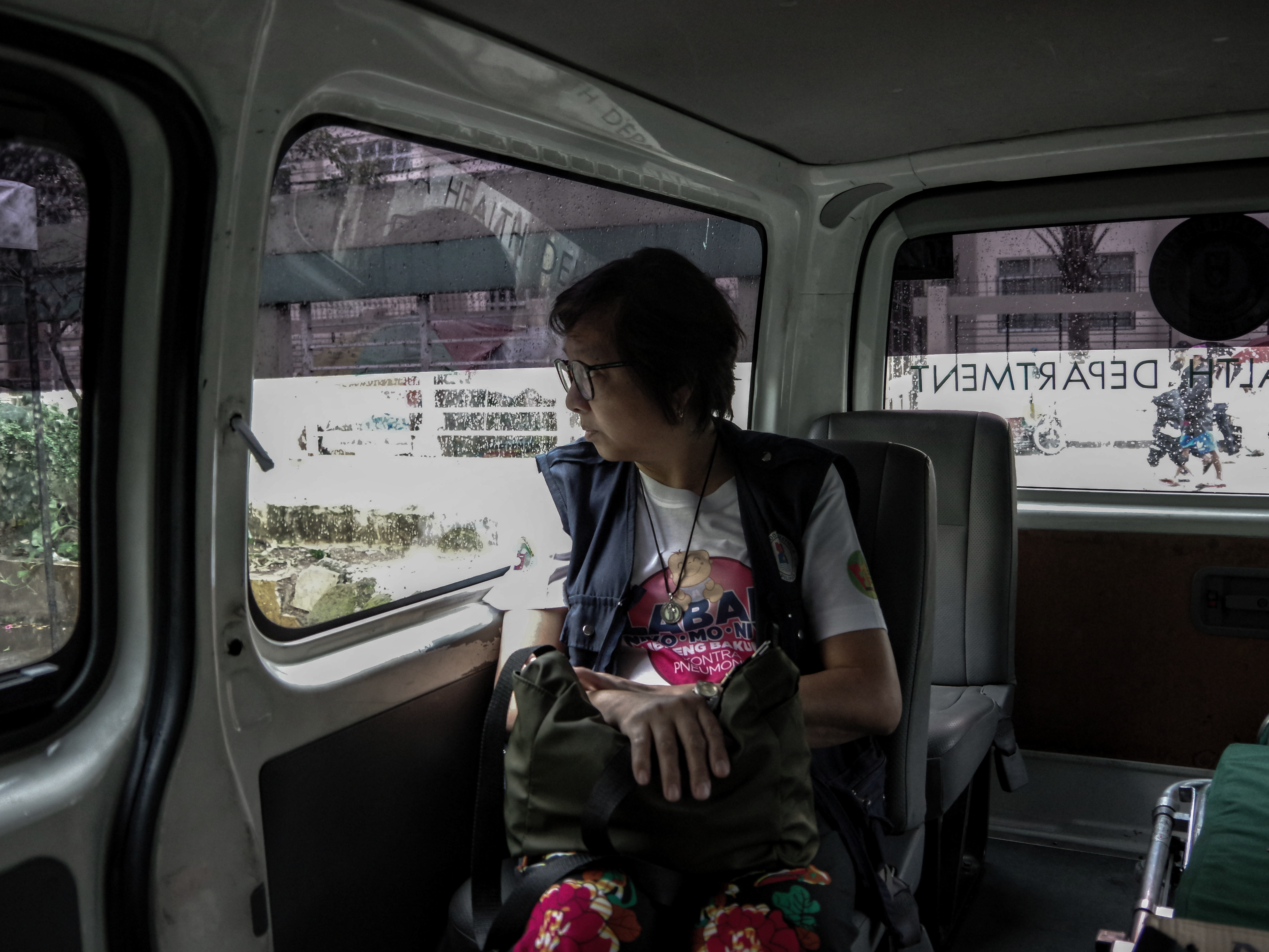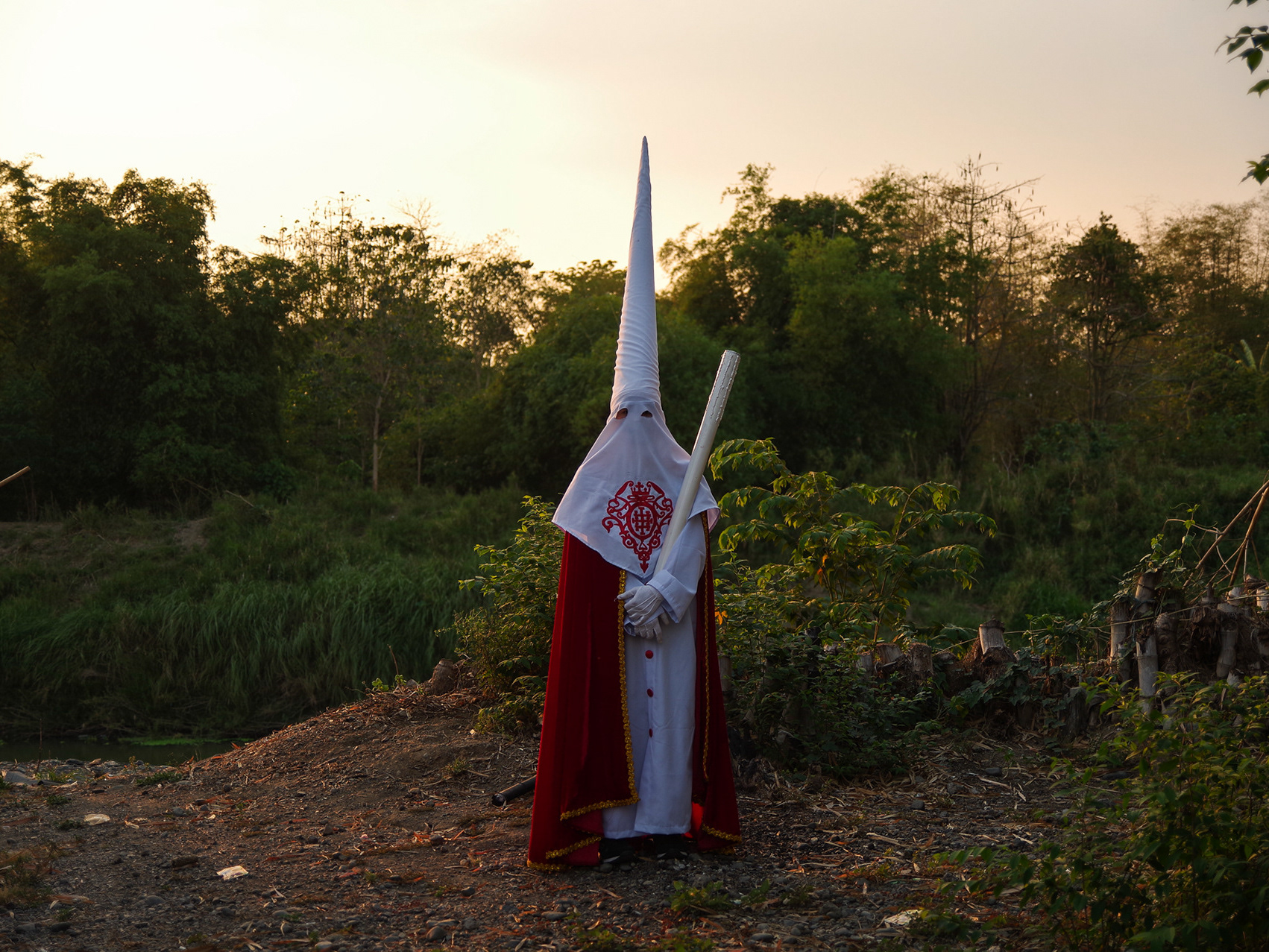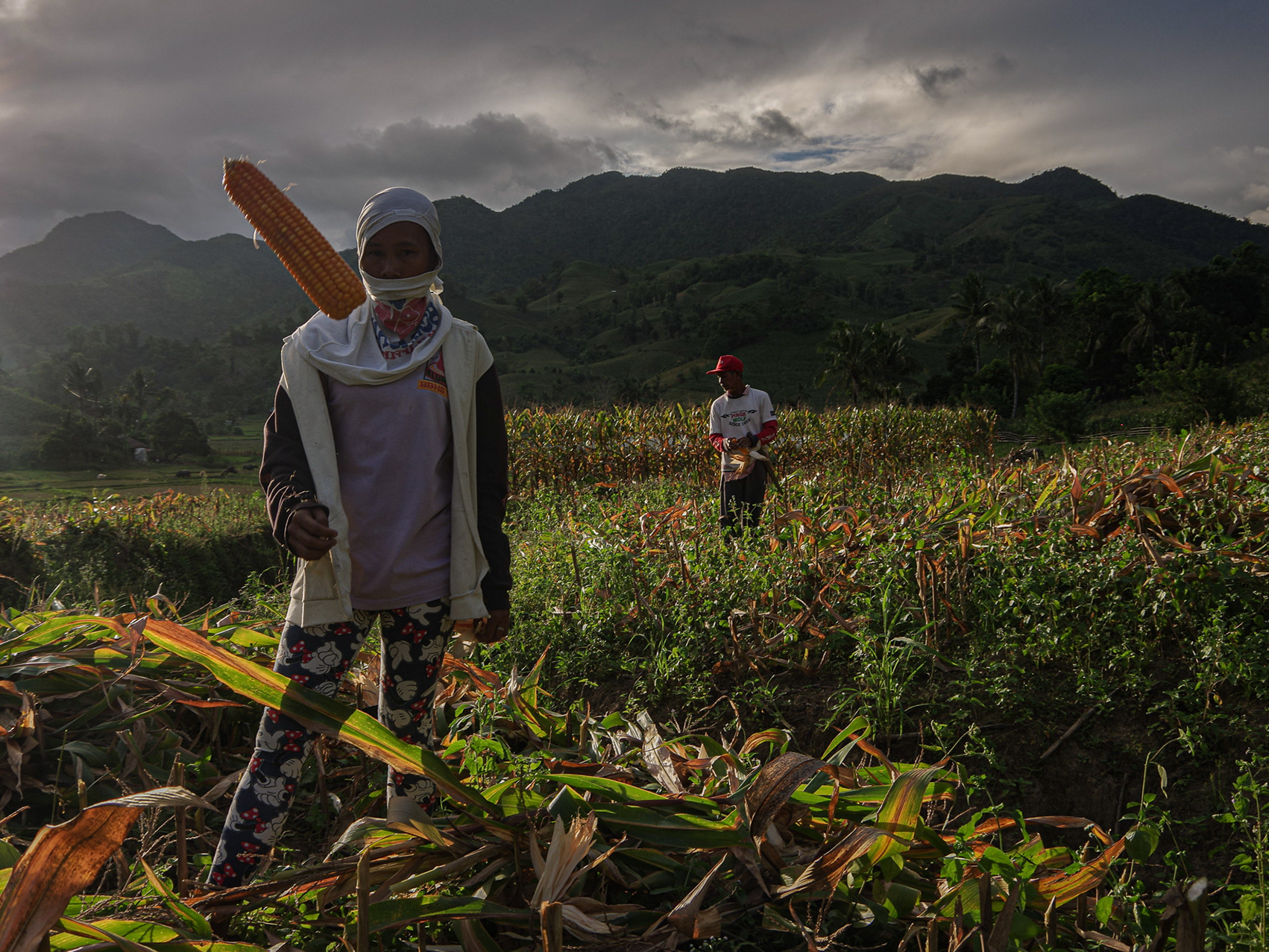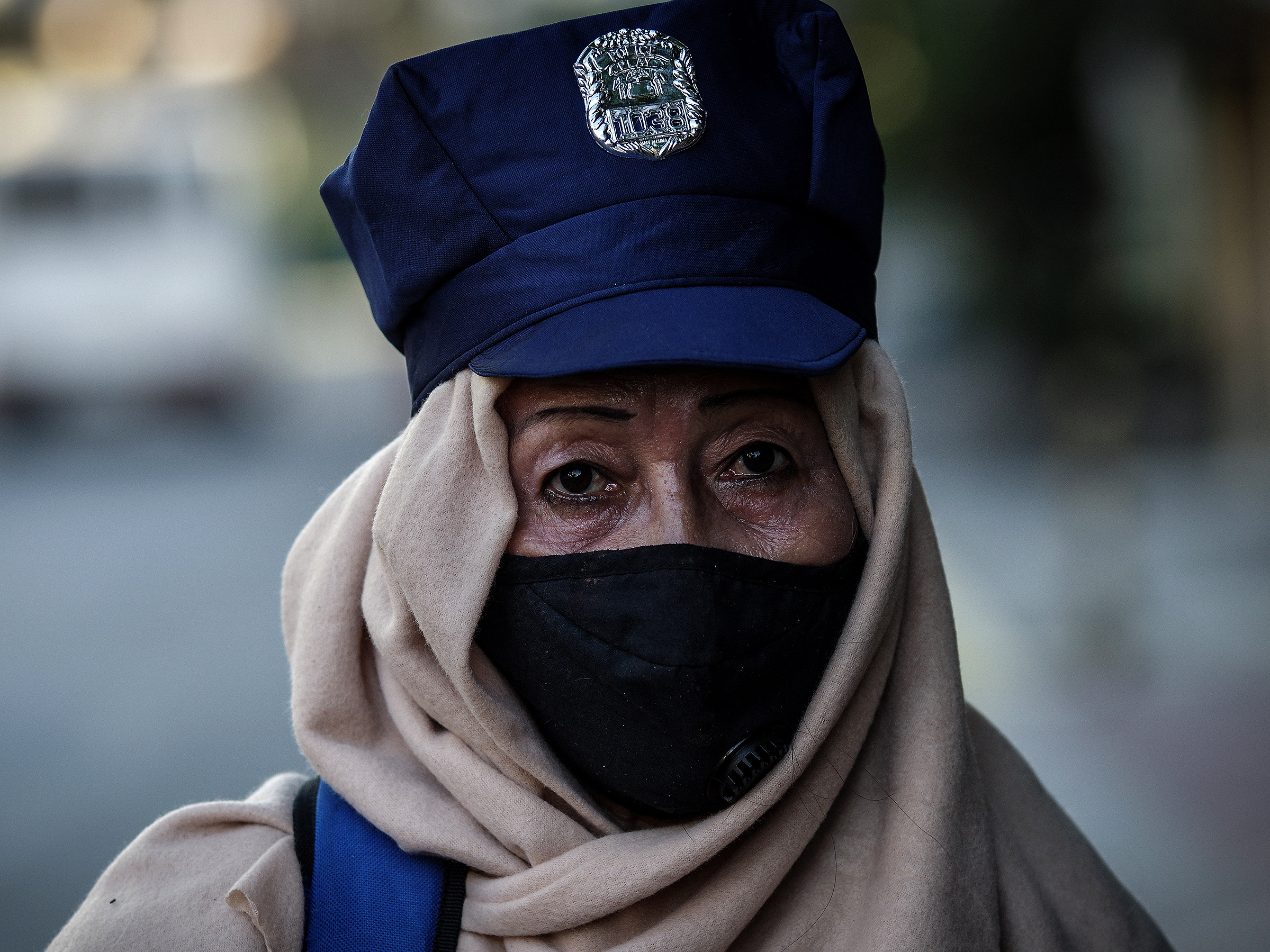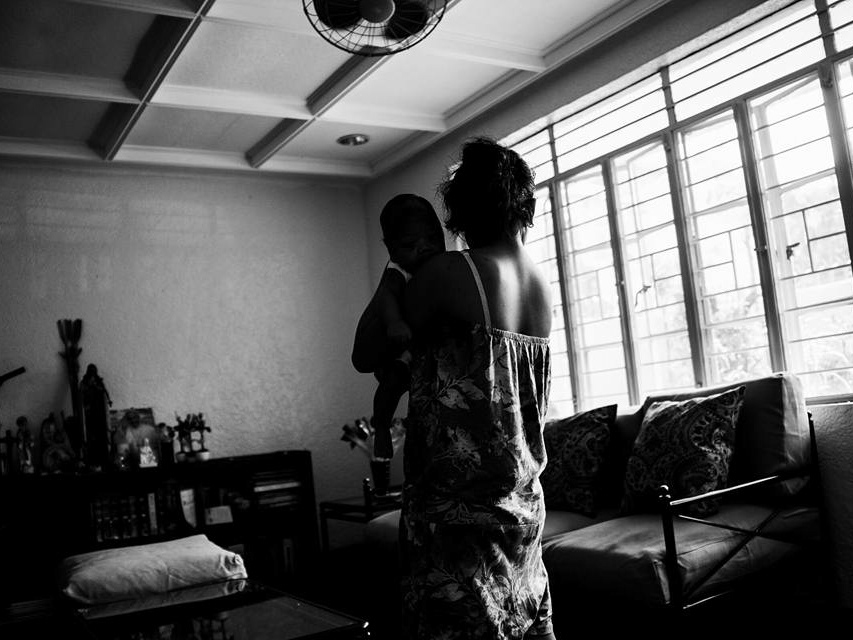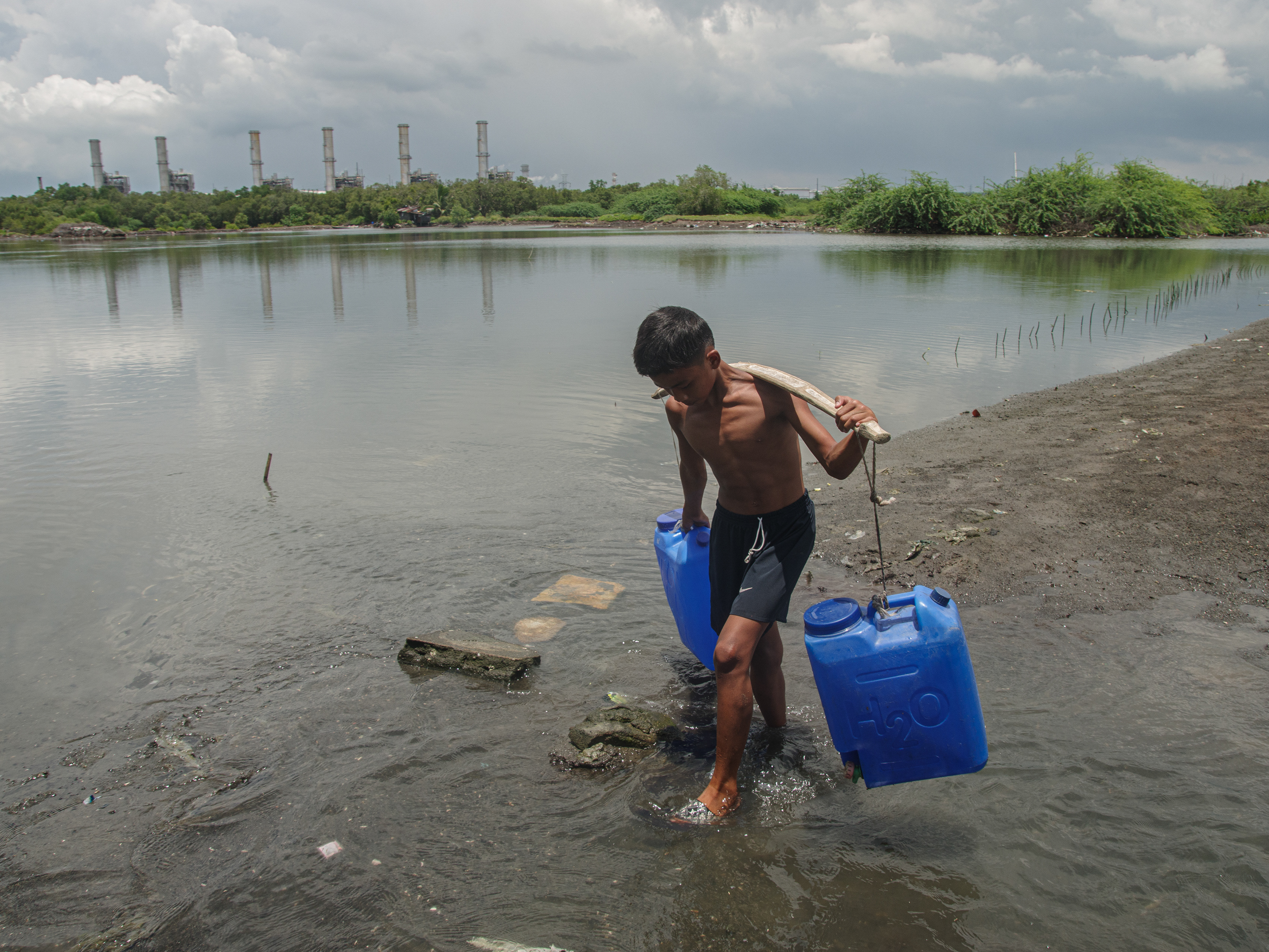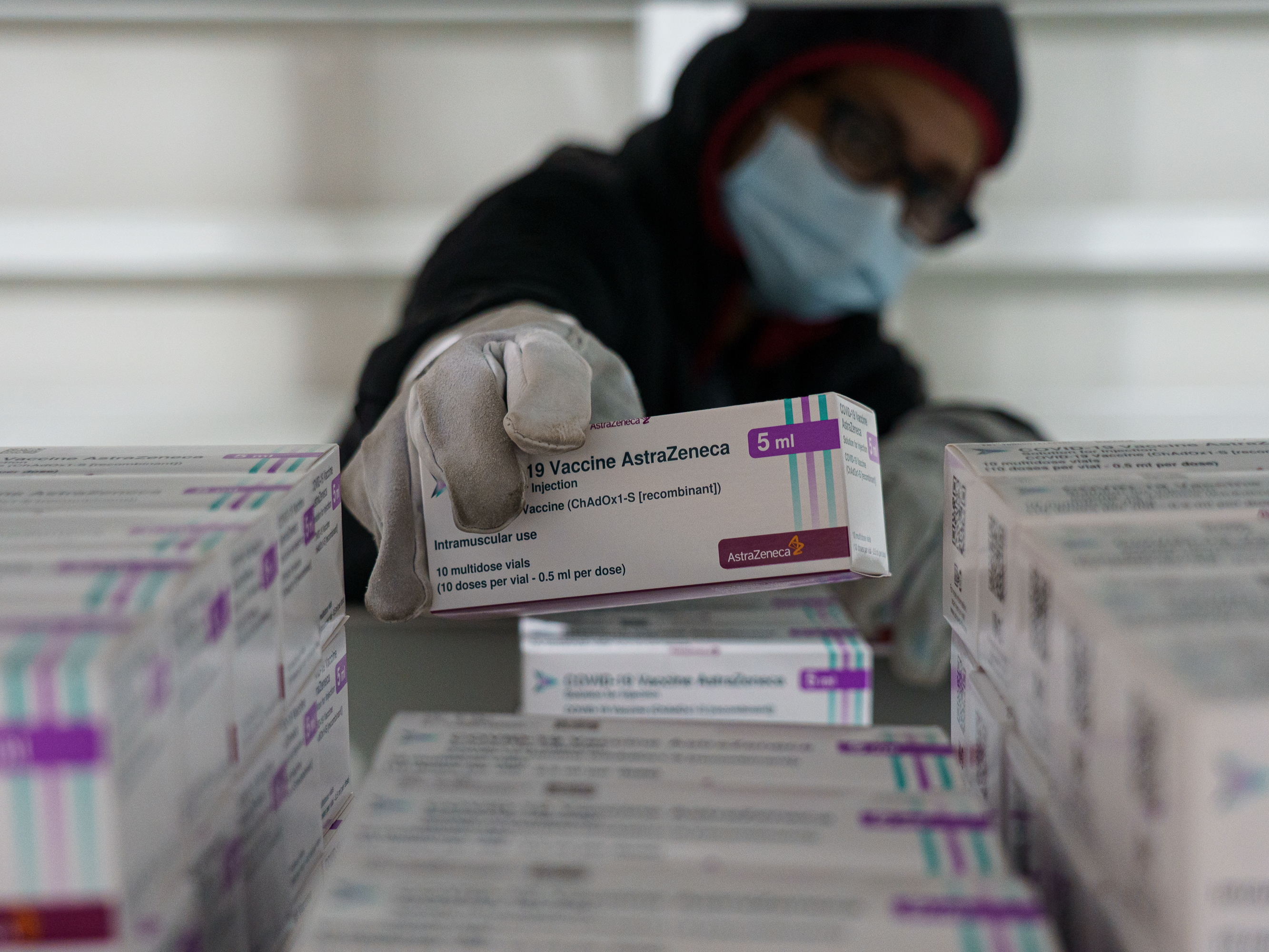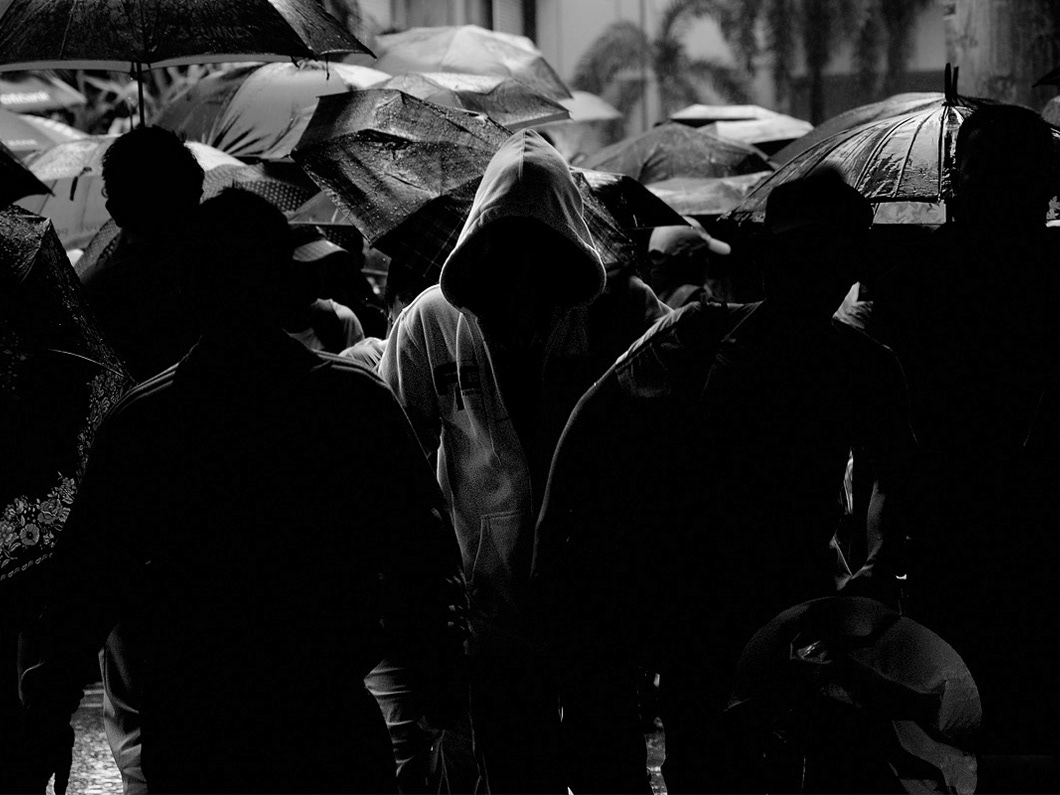Building Bright Futures: Protecting Children Through Vaccination
Bangsamoro parents strive to protect children from vaccine-preventable diseases
Text and Photos by Larry Monserate Piojo for UNICEF Philippines
Originally published in UNICEF Philippines | 2024
Photo by Larry Monserate Piojo for UNICEF Philippines
MANILA, 25 April 2024 – Since January 2024, over 600 cases of measles, locally referred to as tigdas or abas, have been reported in the Bangsamoro Autonomous Region in Muslim Mindanao (BARMM), about 550 miles (900 km) south of Manila. Measles, transmitted via respiratory droplets, poses high risk to children and the unvaccinated, causing severe infections like lung and brain ailments, diarrhea, and blindness. Responding to this outbreak, the Ministry of Health launched a free measles vaccination campaign in April, to reach over 1.3 million vulnerable children across the region.
The densely populated village of Basak Malutlut in Marawi City in the province of Lanao Del Sur. Lanao Del Sur holds the highest measles case count, comprising a third of BARMM’s total cases.
Cold Chain Manager, Rocainah Purcell (right) talks to UNICEF’s Amina Lim inside the walk-in cold chain facility provided by UNICEF with support from the Government of Japan in the Integrated Provincial Health Office in Lanao Del Sur, BARMM on April 5, 2024. The cold chain facility maintains vaccine potency.
Healthcare workers at Saguiaran Rural Health Unit prepare measles vaccines before going to the community to immunize children. With a target population of 7,426 children in the Municipality of Saguiaran, Lanao Del Sur, they persevere despite challenges, leveraging their determination to succeed with the available resources.
Health Workers from Saguiaran Rural Health Unit set-up their vaccination area in Barangay Pagalamatan in Saguiaran, Lanao Del Sur.
Children, accompanied by their parents, queue up to receive their measles vaccine at a covered court in Barangay Pagalamatan, Saguiaran, Lanao Del Sur.
Faraidah Gandamrah of Integrated Provincial Health Office (IPHO) prepares a measles vaccine to be administered to children in Pagalamatan, Saguiaran, Lanao Del Sur.
It is humanly possible to protect our children
Many parents are still committed to shielding their children from the perils of measles, despite reports of vaccine deferrals and refusals in the region stemming from various factors such as cultural and religious beliefs, fears of side effects, and other concerns. They are taking proactive steps to safeguard their health and to ensure they receive timely vaccinations, often facilitated by health workers who do door-to-door visits.
Norjannah Abad, a 28-year-old mother, brought her two children to a vaccination drive in Barangay Pagalamatan, Saguiaran, Lanao Del Sur. Her swift action was fueled by the news of a neighbor falling victim to measles, igniting fears for her own children's safety. She wasted no time in getting her children vaccinated.
Norjannah Abad, 28 (center) joins other parents with their children in a covered court where health workers have set-up a vaccination campaign in Barangay Pagalamatan, Saguiaran, Lanao Del Sur, BARMM.
One-year old Norasia Abad, daughter of Norjannah Abad, receives her measles vaccine in a covered court in Barangay Pagalamatan, Lanao Del Sur.
Norjannah Abad’s 5-year old child, Johaiber Abad receives his measles vaccine in a covered court in Barangay Pagalamatan, Lanao Del Sur.
After getting his measles vaccine, Johaiber excitedly plays around the covered court where other children are being vaccinated.
Children residing primarily in the transitory site in Pagalamatan, Saguiaran, Lanao Del Sur, BARMM, receive their measles vaccines through a free vaccination campaign conducted by the Saguiaran Rural Health Unit.
"Have your children vaccinated to prevent them from contracting measles. If they don’t get vaccinated, they will end up being hospitalized."
- Norjannah Abad, mother
Concerned about the risk of measles infection, Norjannah Abad promptly brought her children to get vaccinated.
In Pantao, Masiu, also in the province of Lanao Del Sur, Norsalam Sharief, aged 36 and a mother of four children between the ages of 3 and 9 is another staunch advocate of vaccination. Despite lingering hesitancies within her community, Sharief and her husband were among the first to receive the Covid-19 vaccine when it became available in their village. Whenever health workers visit their village for routine vaccinations, Sharief ensures her children are among to get vaccinated. She endeavors to dispel fears among fellow parents, emphasizing the importance of health workers' efforts in securing their children's well-being.
"I set an example. When health workers arrive to administer routine vaccines, including for measles, I encourage my children not to fear the jab."
- Norsalam Sharief, mother
Sharief endeavors to dispel fears among fellow parents, emphasizing the importance of health workers' efforts in securing their children's well-being.
Norsalam Sharief ensures her children are prioritized to receive measles vaccines as soon as they become available. “"I set an example. When health workers arrive to administer routine vaccines, including for measles, I encourage my children not to fear the jab. We prioritize their safety by ensuring they receive vaccinations. Measles is a severe illness that can have fatal consequences," she stressed, highlighting the critical need for vaccination.
Mala Mosama, 49, and his wife, Asniah Abdurashid, 31, along with their three children, in their home Pantao, Masiu, Lanao Del Sur.
Despite prevailing cultural and religious beliefs and common misconceptions about being vaccine halal, they prioritized their children's health completing their routine vaccination. Muslim religious leaders and BARMM’s Ministry of Health actively advocate for vaccination, affirming the Islamic acceptance of anti-measles vaccines and emphasizing their safety, halal status, and effectiveness in preventing measles and its potentially serious consequences.
Asniah Abdurashid, observes the Duhr prayer in their bedroom during Ramadan in Lanao Del Sur.
Mala Mosama, prays the Duhr prayer inside a mosque near their home during Ramadan in Pantao, Masiu, Lanao Del Sur.
Amidst the measles outbreak, vaccination remains the most effective preventive measure against the disease. Measles vaccine shots are recommended for children between the ages of 6 months and below 10 years to ensure long-term immunity.
Two doses of the vaccine are required to ensure children's immunity against measles.
UNICEF has been a steadfast supporter of routine immunization in the Philippines for over 75 years. By working closely with the Philippine government, local government units, health workers, communities, and parents, it becomes more humanly possible to eliminate vaccine-preventable diseases nationwide. These efforts must extend to remote areas, reassuring people of vaccines' safety, efficacy, and life-saving potential, as already preserved millions of lives in the past and protected many children and families.

